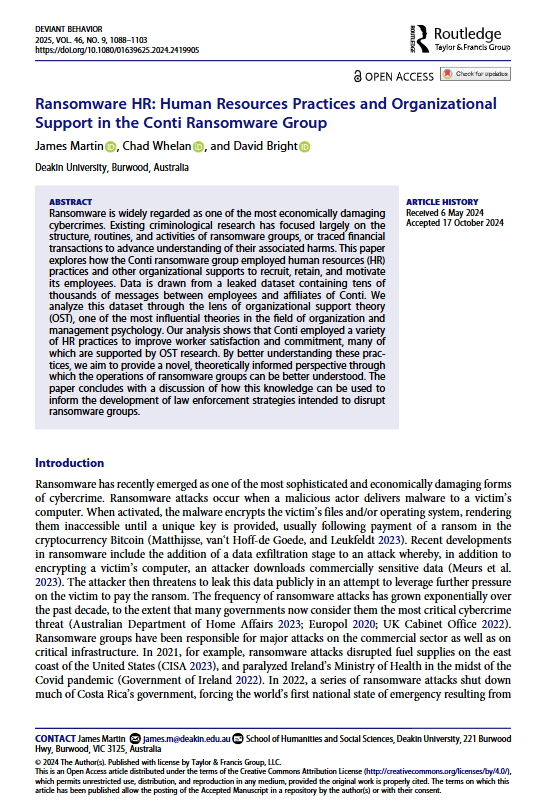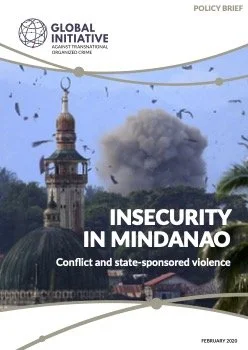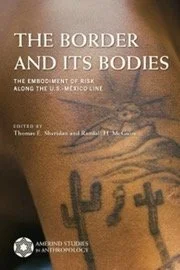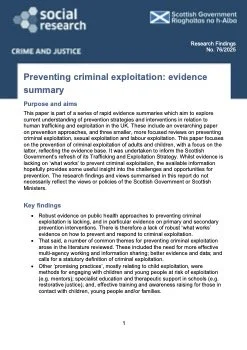By The Scottish Government, Social Research
This paper is part of a series of rapid evidence summaries which aim to explore current understanding of prevention strategies and interventions in relation to human trafficking and exploitation in the UK. These include an overarching paper on prevention approaches, and three smaller, more focused reviews on preventing criminal exploitation, sexual exploitation and labour exploitation. This paper focuses on the prevention of criminal exploitation of adults and children, with a focus on the latter, reflecting the evidence base. It was undertaken to inform the Scottish Government’s refresh of its Trafficking and Exploitation Strategy. Whilst evidence is lacking on ‘what works’ to prevent criminal exploitation, the available information hopefully provides some useful insight into the challenges and opportunities for prevention. The research findings and views summarised in this report do not necessarily reflect the views or policies of the Scottish Government or Scottish Ministers.
Key findings
Robust evidence on public health approaches to preventing criminal exploitation is lacking, and in particular evidence on primary and secondary prevention interventions. There is therefore a lack of robust ‘what works’ evidence on how to prevent and respond to criminal exploitation.
That said, a number of common themes for preventing criminal exploitation arose in the literature reviewed. These included the need for more effective multi-agency working and information sharing; better evidence and data; and calls for a statutory definition of criminal exploitation.
Other ‘promising practices’, mostly relating to child exploitation, were methods for engaging with children and young people at risk of exploitation (e.g. mentors); specialist education and therapeutic support in schools (e.g. restorative justice); and, effective training and awareness raising for those in contact with children, young people and/or families.
Though early intervention (secondary prevention) is considered essential to prevent and respond to child criminal exploitation, the literature reviewed for this paper raises concerns about a lack of a contextual safeguarding approach - which assesses risks outside the family/home environment, including online.
Much of the literature focuses on the criminal justice response (tertiary prevention). A common theme concerning child exploitation was the prioritisation of prosecution over safeguarding.
Also in relation to tertiary prevention, the literature reviewed raises a number of concerns about service responses. Access to tailored, specialist support for criminal exploitation is reported to be limited in the UK. Moreover, a lack of suitable accommodation and appropriate mental health support were flagged as key barriers to preventing child re-exploitation.
Edinburgh: The Scottish Government, 2025. 17p.






